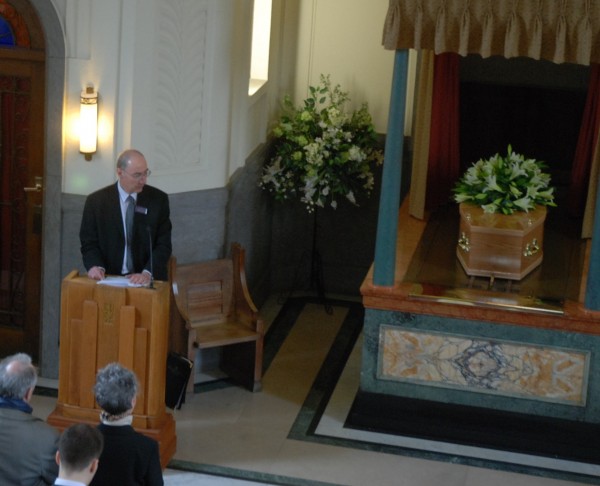
by Michael | Jan 4, 2016 | Blog
Let’s be brutally frank: it’s funeral season. And let’s face it, we’re all going to die some time …
I’m a funeral (as well as a wedding) celebrant. So here’s some guidance that may be helpful to you, when the inevitable happens.
Death
If someone dies at home (or in a nursing home), a doctor must be called to issue the Medical Certificate of Death. This will be done by hospital staff, if the deceased dies while in hospital.
Assuming there is no need for a post-mortem, etc., the next step, before arranging the funeral, is to make an appointment to see the Registrar.
Registering the Death
There are lots of choices how to commemorate a death, but, come what may, it has to be recorded legally. So the registrar will need to be informed, and will want:
- details of the death (including the Death Certificate)
- name, address, date and place of birth of the deceased
- their occupation
- whether they were receiving a pension or allowance from public funds
- if married, the date of birth of the surviving spouse.
The funeral
The Procession
Historically, a cortege was much favoured, and today you can still see horse-drawn hearses. Most commonly, though, it will be a limousine – although you can actually come across a range of creative ideas for the procession (eg motorcycle hearses, or bringing the coffin by a lorry, say, to reflect the deceased’s profession or passion).
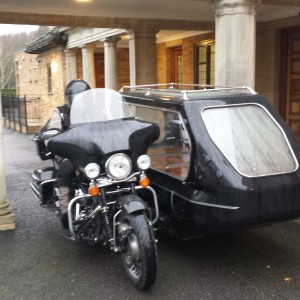
Burial
There are a number of interesting customs still in use – mostly in Wales, Scotland and Northern Ireland, where burial tends to happen sooner. Some regional traditions include the use of cords to lower the coffin (Scotland), families in Wales announce a death by pinning cards to lamp posts and there are the ‘lifts’ (Northern Ireland), where the coffin is passed from hand to hand. In England, rosemary may be placed on the coffin or at the graveside (symbolising remembrance).
It is traditional to strew soil or rose petals over the coffin, but nowadays there are new rituals, which may include live music, fireworks, release of doves, bubbles or balloons.

Cremation
Ashes can be buried, scattered or kept, so it is as well to consider these options carefully. There are various regulations about scattering or burying ashes, and a Funeral Director should be able to advise you.
The service
Music still plays a big part at a funeral, but religious music is in decline. People prefer songs associated with the deceased (or chosen by them). An organ is often an option, but usually the chapel may have a Wesley System (which can access most songs). Alternatively or additionally, CDs or MP3s are the order of the day.
Orders of service have often become more elaborate than they once were. Now, in addition to the deceased’s name, date of birth and death and the words of any hymns being sung, there may well be photographs and stories.
Speeches and Eulogies
In many cases, the person leading the service still delivers the eulogy, but increasingly family, friends and work colleagues may contribute a poem, a memory or a tribute.
Celebrant
If you use a Funeral Director, they will give you information about the funeral and should explain that you can have a full religious service, a humanist-type one (totally secular) or a part-religious funeral ( combining both elements). They will then put you in touch with the appropriate celebrant.
In most cases, the celebrant will visit and discuss the choices that may be available to you so that you can have the service that is most fitting and, hopefully, satisfactory.
Perhaps this is the moment to remind you that I offer religious, part-religious or non-religious services! I even write and prepare funerals for those who want to have a say in their funeral during their life-time.
by Michael | Jan 4, 2016 | Blog
I’m not superstitious – touch wood.
Ok, so that’s a bit of an old chestnut – but there are a lot of intriguing wedding superstitions around, and I’d like to look at a few now.
Keeping bride and bridegroom apart
This custom goes back to the days of arranged marriages. The fear was that if the pair saw each other before the ceremony (which would often be the first time they met), they might have second thoughts and back out.
Most people continue with this tradition – without really knowing why.
The bride’s veil
This originated in Ancient Rome, when a veil was considered necessary protection for the bride against potentially jealous evil spirits as she walked down the aisle.
Carrying the Bride over the Threshold
Originally a medieval superstition, it was believed that a bride was extremely vulnerable to evil spirits via the soles of her feet. By carrying her into their new home, the groom would ensure that the evil spirits had no access that way.
Something Old, New, Borrowed and Blue
These items loosely represent past, present and future. The “old” obviously symbolises the bride’s past; the “new” stands for the couple’s (happy) future. The “borrowed” item should come from someone who is happily married, so that the present good fortune rubs off on to the newly-weds. “Blue” represents fidelity and love.
Bells
Surprisingly, perhaps, the ringing of church bells is probably not of religious origin. It is considered to be another weapon to drive away evil spirits. And miniature bells is quite a common gift for newly-weds, especially in Ireland.
Breaking Glass
I thought of this as merely a Jewish custom: the groom shatters a glass cup underfoot to symbolise that the new relationship will last for ever and is also a sobering reminder of the fall of the Jerusalem Temple. However, this action is also common in Italy, where the number of pieces of broken glass is said to represent the number of years the couple will spend together.
Crying
Crying on your wedding day is fine, as it is considered that you will get your lifetime’s crying over and done with at this one occasion.
Wedding Day
Unbeknown to many, English superstition has it that Saturday is the unluckiest day of the week to get married. Well, it can’t be too unlucky, as most people are still doing it!
Rain on your Wedding Day
Rain is considered to symbolise fertility. But it is a blasted nuisance.
Watch who you Meet
It is supposedly bad luck to cross nuns, priests or funeral processions on the way to the ceremony; however, apparently, all will be well if you see a black cat, rainbow, policeman or frog (as one does). And chimney sweeps are good news too, as the “Mary Poppins” film bears out.
Well, whether you think there’s anything in these “old wives’ tales”, at least you can’t say you haven’t been warned.
Good luck!
by Michael | Jan 4, 2016 | Blog
Remarriage usually has its issues. A potential complication can arise when either, or both of them, has children.
How should these be involved in the ceremony?
Of course, this is a matter of choice. The children may prefer to stay on the periphery – or you may decide that they should keep a low profile. A lot will depend on their ages.
Here are some suggestions that might work well, particularly with teenage children.
- Planning
Your children could contribute towards the choice of music at the reception. You might be surprised at what they actually ask for – and it will be special if they are out on the dance floor (voluntarily) from time to time.
If they are artistic, children may be able to help create the ceremony décor; very musical ones might be able to sing a bit at the service, accompany the music on guitar etc. (if up to it!) or simply do a reading.
Children might be allowed input into the choice of menu at the reception – especially if they are getting a different meal.
Do give each of the children a role, and, unless it is unavoidable, don’t leave anyone out.
- Invitations
If you can afford it, why not let your friend/daughter invite a friend (each)? Even the moodiest of teenagers will appreciate the gesture, and your kind thought may spare him/her from what can be a fairly isolating experience.
- The Ceremony
There are plenty of ways to involve the children in the ceremony itself. Traditionally, they can be asked to be ushers (groomsmen) or bridesmaids. But younger boys could do the Best Man bit with the rings (although I understand it if some might consider that a risky move!). They could always be the ones who give Mum away at the start of proceedings.
- Unity Rituals
A lovely idea is to ask the children to participate in a ceremony ritual. They could make vows to their new step-parents (who could reciprocate). They could be part of a sand-blending ceremony, but my favourite as a civil celebrant is the Unity Candle.
Provide each child with a taper and (health and safety permitting!) they and the couple all use the tapers to light the Unity Candle at the same time. The symbolism is strong and affecting.
- Make the children feel special
After the ceremony, children could help usher guests through to the reception. Then, with age of course a determinant, an older child could propose a toast at the reception.
They might be given flowers to present to their mothers or new step-mothers at the time of the speeches.
Depending on the child’s maturity, he/she could be allowed a very short speech.
Dancing with the step-parents can be lovely (although it may be as well to warn the step-child well in advance!).
As the children (like it or not!) are joining a new family, it makes a lot of sense to include them wherever possible on, and maybe before, the big day. If you can start bonding with them in early days, that has got to be for the best.
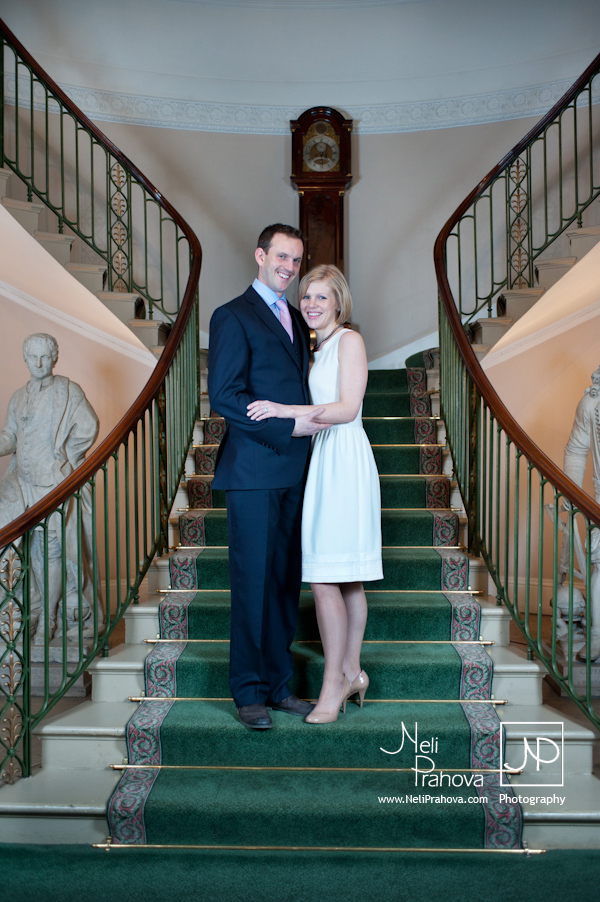
by Michael | Dec 30, 2015 | Blog
Most of us would agree that preparing for a wedding should have a government health warning attached! So how can marriage be good for your health? Surely that start to married life must be one of the most stressful things you’re going to encounter.
Until you have children. Or your marriage hits the rocks. Or someone close to you dies. Get the picture?
Well, I don’t suppose you’ll believe it, but, according to recent research, marriage may actually benefit your health.
[And that refers to women, as well as to men, by the way!]
A surprising fact
Studies have shown that people who are widowed, divorced/separated or unmarried are likely to die earlier than married people.
So why should this be?
Possible Explanations
There can be no single reason, and there may also be some very particular reasons – thus a rich couple may live longer simply because they are able to afford better health provision.
Wealth
Talking of wealth, you can justifiably claim that the acquisition of wealth may well entail great stress (depending on how you acquire it!), but the reverse is also true: if both of you are earning a reasonable income, you are likely to be more relaxed and at ease. After all, finances are a major cause of stress. There is evidence that suggests that married men are likely to earn 40% more money than single men and security is a great stress-reliever.
Employment
Job security is another factor – and the fact that you are married can indicate trustworthiness and security to your employer, which can improve your prospects – and put you ahead of otherwise comparable competition at a job interview.
Health and Safety
As far as health is concerned, being part of a committed married couple reduces your risk of contracting sexually-transmitted diseases.
Couples tend to watch out for each other’s health and can often identify potential problems before they become serious. They may also encourage (nag?!) the other to have a “minor” issue checked out.
Married couples also appear to be less likely to get involved in potentially violent disputes between others. Moreover, single/divorced women are far more likely to be victims of violence than married women. Likewise, unmarried men are also at greater risk of violent crime than married men.
Solitude and Intimacy
According to evidence that must surely be a little anecdotal (!), considerably more married couples engage in sex each week as opposed to single or cohabiting individuals. This has health benefits (not just because exercise is praiseworthy), as sex releases endorphins that improve mood and can reduce stress (and encourage more of the same).
Mental issues
Various studies indicate that married men or women are far less likely to commit suicide than their single counterparts, and the same goes for indulging in alcohol and illegal drugs. In fact, an international study has found that married people are likely to be significantly happier than unmarried ones. (I don’t know how they quantify happiness, but these studies appear to have been carried out scientifically.)
Conclusion
Of course, there are unsuccessful marriages (the divorce rate alone indicates that) and, as I have said, some of the so-called evidence seems hard to demonstrate as hard fact, but there is enough here to convince me that I am doing the right thing as a civil celebrant by helping people get married! I gather that there are some massive fringe benefits for my couples!
by Michael | Dec 30, 2015 | Blog
A morning wedding?!!
A lot of people assume that a wedding should take place in the afternoon or, possibly, evening.
That makes some sense. It gives people living at quite a distance from the venue a chance to leave home at a respectable hour and not arrive too drained. Then they have the option of staying locally overnight after the festivities.
“I’m Getting Married in the Morning!”
But supposing it wasn’t that way round? What if guests stayed overnight before a morning ceremony and so were nice and fresh for it? True, they would have to watch what they drank, if driving back later that day, but it would not be ridiculous.
Another great reason for having the event in the morning is that it is normally considerably cheaper.
As there will be less competition at that time, the venue hire ought to cost less and you can probably get pay-per-plate items for a lot less than you would later in the day.
And remember, cheaper doesn’t have to mean worse.
The Ceremony
You should have no trouble getting the registrars to do their bit for you in the morning, and the same should certainly apply for the civil celebrant. It won’t affect the cost, but it will work every bit as well.
The Reception
Food
If you’re offering brunch, that means you can have breakfast and lunch items, which can add variety (without costing too much). You can offer a Full English (with vegetarian alternatives), but also, possibly, steaks, even salads, and waffles or the like.
Drink
Some people may not want to drink alcohol in the morning, so teas, coffees, mineral water, lemonade and fruit juice should be on offer. However, some people will definitely want a celebratory alcoholic drink or two, and some champagne may well be appreciated.
Revelry
It may be a (late) morning reception, but you can still have music and dancing (and certainly speeches – if the latter can be included under the heading of ‘revelry’!). The entertainment may well be a little more subdued than you might expect at an evening gathering, but no less enjoyable for that!
There should also be a cake (people love the photo of the couple cutting the cake – and often enjoy the cake itself, of course!). Sweet stuff is sometimes less appreciated in the morning than later, but don’t be surprised if you won’t be taking much away afterwards in the doggy bag!
In conclusion
A brunch wedding can be as formal or informal as you like. That goes for the ceremony as well as the reception. For the festivities you can provide food stations, or a regular sit-down four-course meal. You can have fine china, table service, flowers, entertainment for kids, and so on.
The joy is that the choice is yours, and for what should be considerably less expense, a morning wedding can be every bit as memorable and enjoyable as an afternoon one.
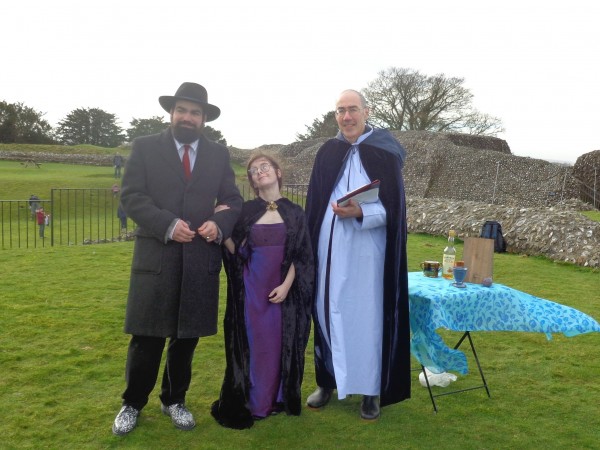
by Michael | Dec 29, 2015 | Blog
Although I do my best to get about and spread the word, I find there’s still a lot of confusion about what a civil celebrant really does and what they can offer. Perhaps I can clear things up a bit.
Imagine …!
What if a full religious wedding doesn’t rock your boat?
What if the totally non-religious, standardised Register Office ceremony isn’t really all that special for your big day?
What if you could go to the Register Office in the morning in your jeans, with a couple of witnesses, sign the marriage certificate and then enjoy a wonderful, joyous, memorable ceremony in the afternoon with all your guests?
Nowadays, you can. That’s where a civil celebrant comes in.
As long as the legal bit is still carried out, there’s nothing to stop you holding the ceremony you actually want – at the venue you want, in the way that you want.
The Ceremony
One of the beauties about a celebrant-led wedding is that he or she will help you (as much or as little as you want!) to build your own ceremony. So if you want a religious component (or perhaps one or two elements drawn from various cultural sources), put that in, by all means; if you want spiritual bits, go for it; poems and favourite texts are absolutely fine. With some give and take, you should be able to please yourselves AND keep your parents happy!
As with the readings, you decide on the music. You also decide on the choreography (who walks or stands where), the readers, any address, the wording, and delivery, of the Vows. Your celebrant will be pleased to advise and make helpful suggestions. This process is usually conducted by e-mail after an initial mutual fact-finding conversation (face-to-face or by Skype).
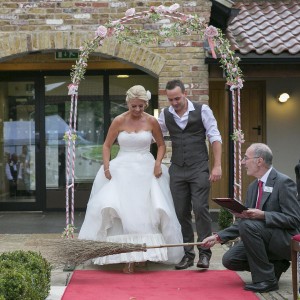
Ritual
You will be able to incorporate any rituals and little touches of your choice that would not otherwise be possible. For example, drinking from a loving cup, burning a Unity Candle, Jumping the Broom or celebrating a handfasting (an ancient Celtic betrothal ritual).
Conclusion
In short, this is YOUR day, and your civil celebrant, who will of course conduct the ceremony for you, will do everything to ensure that the day is unforgettable, meaningful and what YOU want.
I hope this clarifies things. If you still have questions, don’t hesitate to ask me! I’ll be delighted to help.






